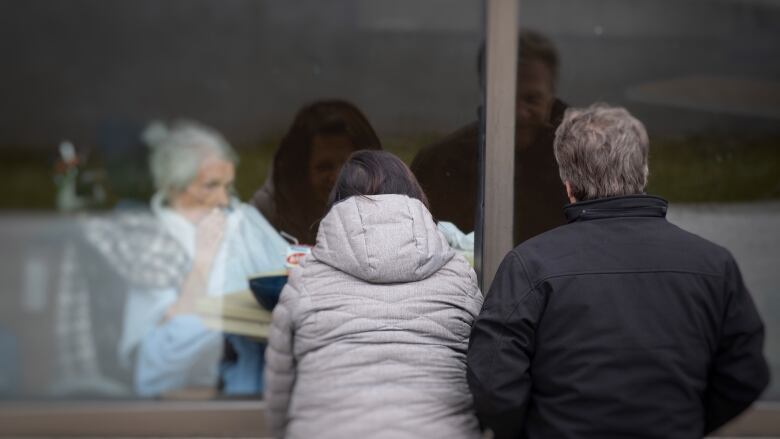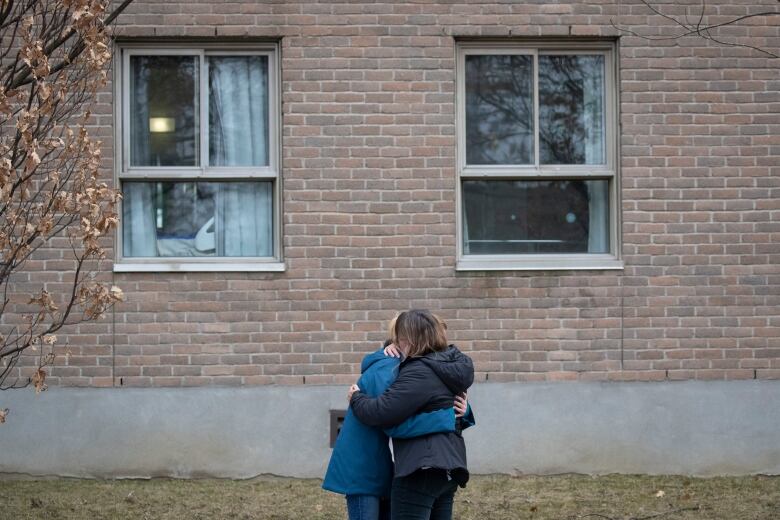Residents of COVID-free long-term care homes can have visitors again, starting now
Residents who live in CHSLDs without active outbreaks can now go on outings, dine together in 'bubbles'

After 100 days strictly confined to their rooms, CHSLD residents can now go on outings, dine together, have their teeth cleaned and receive visitors, as long as there is no active coronavirus outbreak in their home.
In a letter sent to the heads of all regional health agencies Thursday, the deputy minister of health, Yves Gendron, laid out a plan to allow residents of long-term care institutions out of isolation, effective immediately.
The letter is accompanied by a three-page list of the freedoms residents will now be allowed, depending on whether the institution where they are living is completely COVID-free.
Among the changes, volunteers will once again be welcome in homes where there is no sign of COVID, starting June 26. Leisure activities will also be permitted, and caregivers hired by residents or their families and people such as hairdressers will once again be permitted to offer their services, starting June 26, as well.
'Bubbles' for dining, group activities
Starting right away, in CHSLDs where there is no COVID and on COVID-free units in CHSLDs where an outbreak persists, residents will be able to dine together and participate in other group activities, as long as they stay in a "bubble" of 10 to 12 people and limit contact with those outside their bubble.
There are still about 70 long-term care institutions, known as CHSLDs, where at least one resident has COVID-19.
Seniors in homes that do have an active outbreak will not be able to leave their residences just yet, but they will have access to some types of personal care. For instance, they can be visited by dentists or audiologists, as long as they are living in a COVID-free section of the residence.
They may also be authorized to go outside by the infection control team at the residence or the public health department, according to a document released by the Ministry of Health today containing details about the plan to bring CHSLD residents out of confinement.

Long-awaited measures
The loosening of the oppressive conditions that CHSLD residents have lived with for more than three months comes after 67 doctors published an open letter expressing their profound concerns about the impact of the containment measures on residents' health and well-being.
The doctors say some residents have been confined to their rooms for 24 hours a day since mid-March. Being so isolated and immobile carries with it increased risks of cardiovascular disease, a weakened immune system, accelerated cognitive decline, psychological symptoms of anxiety or depression and even an increased likelihood of death, the doctors state.
Many residents' muscles have atrophied and their joints are degenerating, say the doctors, more than 20 of whom are geriatric specialists. In some cases, physical restraints are being used to keep people confined.
In their letter, the doctors say residents must be allowed to go on supervised outings, and locking up seniors for 24 hours a day in their rooms should be prohibited.
The doctors are also calling on the government to offer psychiatric or psychological support to residents who have been confined all this time, to help them recover from the effects of isolation.
Seniorsadvocacygroup group welcomes news
Opening long-term care homes was "badly needed," said Vanessa Herrick, executive director of Seniors Action Quebec.
"People have been quite isolated and living in quite fearful circumstances for a long time without family support," said Herrik on CBC's Let's Go.
It's also a benefit to overworked staff as visiting families can help tend to their loved ones in the homes, she said. Families on the outside looking in over the last few months are also relieved as they have been living with stress of their own, she said.
"While understanding that we all have to be extremely vigilant to make sure we don't have another outbreak of COVID, it's excellent news," said Herrik.













_(720p).jpg)


 OFFICIAL HD MUSIC VIDEO.jpg)
.jpg)



























































































